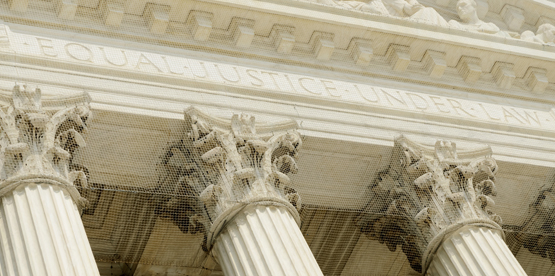A&B Abstract:
When litigating in federal court, government agencies are not exempt from the rules of discovery. The Eleventh Circuit reminded the Consumer Financial Protection Bureau (“CFPB”) of this in its recent decision CFPB v. Brown, et al., No. 21-14468 (11th Cir. 2023). There, the Court affirmed a district court’s sanctions order dismissing the CFPB’s claims against five defendants because the CFPB had “engag[ed] in dramatic abuse of the discovery process.”
The Case
“The CFPB’s problematic conduct began during discovery.” In response to Rule 30(b)(6) deposition notices from five defendants to depose a CFPB representative, the CFPB objected that: (i) it had already provided the information in its interrogatory responses, (ii) the notice inquired into topics covered by the law enforcement and deliberative process privilege, and (iii) the depositions were an improper attempt to question CFPB counsel about their mental impressions and analyses. The district court, however, overruled these objections “reasoning that Rule 30(b)(6) applies with equal force to government agencies” and that “factual matters are subject to inquiry even if those matters have been disclosed in interrogatory responses.”
The CFPB then moved for a protective order to reduce the scope of the 30(b)(6) depositions. The district court granted this in part, striking the balance that “facts—including ‘exculpatory facts’—were fair game while questioning that ‘would delve into [the CFPB’s] trial strategy’ was off limits.” With this guidance in hand, the parties proceeded with their depositions.
In the first 30(b)(6) deposition, “the CFPB avoided answering questions through a number of impermissible tactics.” It lodged work product objections even to fact-based questions that the district court had instructed it to answer. It equipped its witness with “memory aids”—lawyer-prepared scripts that were hundreds of pages in length—from which the witness repeatedly engaged in “filibuster-style reading.” And despite the district court’s instruction that it should answer questions concerning exculpatory facts, the CFPB took the position that it had not identified any exculpatory facts in the entire voluminous record.
Given the CFPB’s tactics during the first deposition, the defendants requested, and the district court conducted, a telephonic hearing. During the hearing, the district court provided further instruction warning the CFPB off of these tactics. The district court also reiterated that “defendants were entitled to question the CFPB about exculpatory facts.” And that while “exculpatory information” is generally a term used in criminal cases, a defendant in a civil case is entitled to discovery of exculpatory evidence that would be in the possession of a government agency that would show the defendant had not committed the alleged violations.
During the next four 30(b)(6) depositions, “the CFPB continued its obstructionist conduct.” Specifically, it continued to object on work product grounds, its witness continued to rely exclusively on memory aids for his testimony, and its witness refused even to answer yes or no questions as to whether certain facts existed.
Consequently, defendants moved for sanctions. The district court granted sanctions, struck all claims against the five defendants, and dismissed them from the case.
In granting this sanction, the district court found that the CFPB had willfully disregarded the district court’s instructions by reading from memory aids to bury defendants in so much information that they could not possibly identify, with any reasonable particularity, what supported the CFPB’s claims. The district court also found that the CFPB’s witness failed to appear because, even though he was physically present, he was effectively unavailable because he could not answer questions without memory aids and because of his “refusal to address exculpatory evidence.” Finally, the district court explained that it was not optimistic that reopening the depositions would be fruitful given the CFPB’s pattern of conduct in the case.
On appeal, the Eleventh Circuit explained that the district court’s instructions and orders were clear, so the CFPB’s failure to comply with them warranted sanctions. It also held that in light of the district court’s conclusion that reopening discovery would not be fruitful, the severe sanction of dismissal was warranted.
Takeaways from the Court’s Ruling
In affirming, the Eleventh Circuit provided an important reminder that government agencies are not exempt from the rules of discovery. They “do[] not have the power to decide which discovery rules [they] will abide by and which [they] will ignore.”
Throughout its decision, the Eleventh Circuit also highlighted the proper and improper uses of memory aids during 30(b)(6) depositions. Memory aids can be used (and can be useful) during these types of depositions so long as they do not replace the witness’s testimony. It is when they stop being memory aids and become lawyer‑prepared scripts that their use becomes improper. They cannot replace live testimony, and where the 30(b)(6) witness cannot testify without relying upon the memory aids, the witness is effectively unavailable.
Finally, in its decision, the Eleventh Circuit stressed that it was improper for the CFPB “to take the incredible position that exculpatory facts did not exist as to any defendant in the case.” While the CFPB argued on appeal that it was improper for the district court to order it to specifically identify evidence that it considered exculpatory, the circuit court concluded that the district court had not asked the CFPB to go that far. Rather, the district court had merely made clear that exculpatory evidence is fair game as part of the discovery process.
In short, parties being sued by a government agency are entitled to discovery, including through 30(b)(6) deposition testimony, about the factual bases for the government agency’s claims against them. This entitlement extends to exculpatory evidence in possession of the government agency that would show the defendant had not committed the alleged violations.
